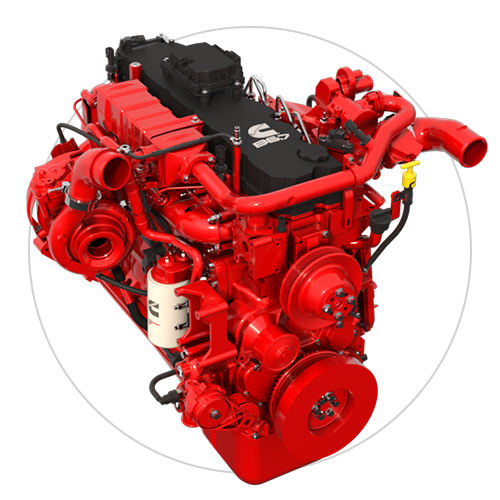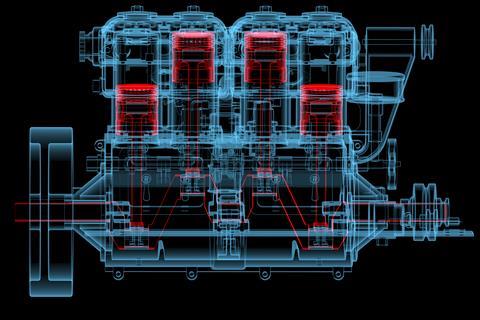Your Go-To Vehicle Components Store for Engines for Africa and Extra
Your Go-To Vehicle Components Store for Engines for Africa and Extra
Blog Article
The Quest for Ultimate Driving Power: Investigating the Pinnacle of Engine Efficiency and Technological Advancements in the Automotive Industry
In the realm of automobile engineering, the search of optimum driving power has actually been an unrelenting pursuit that has actually unfolded via the evolution of engine style and the assimilation of innovative modern technologies. From the careful workmanship of burning engines to the rapid improvements in electric propulsion systems, the auto industry stands at the cusp of a new era identified by unprecedented performance capacities. As researchers and engineers dig deeper into the worlds of computational liquid dynamics and check out cutting-edge fuel modern technologies, the horizon of opportunities expands tremendously. Stay tuned as we unwind the complex tapestry of technological developments that are shaping the future of vehicle power and efficiency.
Advancement of Engine Design

In addition, the combination of turbocharging and turbo charging modern technologies has reinvented engine layout by improving power without considerably boosting engine dimension. These forced induction systems compress the consumption air, permitting even more gas to be ignited, thereby producing higher power result from a smaller sized engine. This improvement has actually been specifically vital in boosting the efficiency of smaller sized variation engines while preserving gas effectiveness requirements.

Performance-Enhancing Gas Technologies
The implementation of advanced fuel modern technologies has actually considerably contributed to improving engine performance in contemporary vehicles. Biofuels, derived from eco-friendly resources like sugarcane, algae, or corn, deal boosted and lowered emissions engine performance. Furthermore, fuel ingredients and cleaning agents are being formulated to tidy engine elements, optimize combustion, and lower friction, thereby enhancing general lorry performance.
Advancements in Electric Propulsion
Substantial strides in electric propulsion modern technology have actually reinvented the auto market, leading the way for a new period of sustainable and efficient transportation. Electric vehicles (EVs) are obtaining appeal because of their ecological benefits and advancements in battery modern technology, enabling longer driving varieties and much shorter charging times. Makers are investing heavily in study and development to improve the performance of electrical propulsion systems, concentrating on enhancing power outcome, boosting power effectiveness, and reducing overall weight.
One significant breakthrough in electrical propulsion is the advancement of sophisticated electric motors that provide higher torque and power density, resulting in improved velocity and total driving efficiency. Furthermore, regenerative braking systems have been fine-tuned to store and capture power during slowdown, more improving the performance of EVs.
Moreover, the integration of wise innovations, such as expert system look at more info and predictive analytics, is maximizing the monitoring of electrical propulsion systems, making certain ideal performance under different driving problems. These developments in electrical propulsion are improving the vehicle landscape, driving the industry in the direction of a much more sustainable and electrified future.
Impact of Computational Fluid Characteristics
With improvements in electric propulsion pressing the borders of automotive innovation, the combination of Computational Fluid Characteristics is playing a critical role in enhancing aerodynamic performance and boosting total efficiency in lorry design. Computational Liquid Dynamics (CFD) includes using computer system simulations to analyze the circulation of air around a review car, making it possible for engineers to forecast exactly how layout changes will certainly influence aerodynamics without the demand for costly physical models. By properly modeling airflow patterns, CFD enables for the improvement of vehicle forms to reduce drag, improve cooling, and boost security.
One key advantage of utilizing CFD in automobile layout is the ability to iterate swiftly, exploring various design variations to recognize one of the most aerodynamically effective options. This repetitive process results in cars that are not just sleeker and much more aesthetically appealing but additionally extra ecologically pleasant and fuel-efficient. CFD allows designers to enhance air movement around elements such as radiators, engine bays, and wheel wells, contributing to enhanced performance and overall driving experience. To conclude, the assimilation of Computational Liquid Characteristics stands for a substantial action onward in the pursuit for utmost driving power and effectiveness in the automobile sector.
Future Patterns in Engine Innovation
In the vibrant landscape of vehicle engineering, advanced innovations are shaping the future trajectory of engine advancement. The future of engine layout is marked by a solid emphasis on sustainability, efficiency, and efficiency. Makers are increasingly concentrating on developing engines that not only provide high power results however also focus on environmental duty by improving and minimizing emissions gas efficiency.
One famous fad in engine development is the surge of electrification. Hybrid and electrical powertrains are gaining traction as feasible choices to traditional burning engines. These technologies use the possibility for significant reductions in carbon discharges and boosted power efficiency, lining up with worldwide initiatives to battle environment adjustment.
Additionally, improvements in products scientific research and production techniques are allowing the manufacturing of lighter and extra durable engine components. Click Here This change in the direction of light-weight products such as carbon fiber and light weight aluminum alloys adds to boosted performance and fuel economic climate.
Final Thought
Finally, the quest of utmost driving power in the automotive industry continues to drive developments in engine design, fuel technologies, electrical propulsion, and computational fluid characteristics. The development of these modern technologies is forming the future of engine development, leading the means for extra powerful and reliable automobiles (engines for africa). As the market continues to push the borders of what is feasible, we can expect to see much more cutting-edge advancements in the mission for peak performance
One of the key landmarks in engine layout advancement is the shift from standard carbureted engines to modern fuel-injected systems. By specifically metering the fuel distribution to each cyndrical tube, fuel-injected engines enhance burning, resulting in much better performance and minimized environmental effect.
Furthermore, the assimilation of turbocharging and supercharging technologies has actually revolutionized engine design by enhancing power without substantially increasing engine size (engines for africa).The implementation of innovative gas technologies has actually considerably added to enhancing engine efficiency in modern-day cars. Additionally, gas ingredients and detergents are being developed to tidy engine elements, maximize combustion, and lower friction, therefore boosting overall automobile performance
Report this page